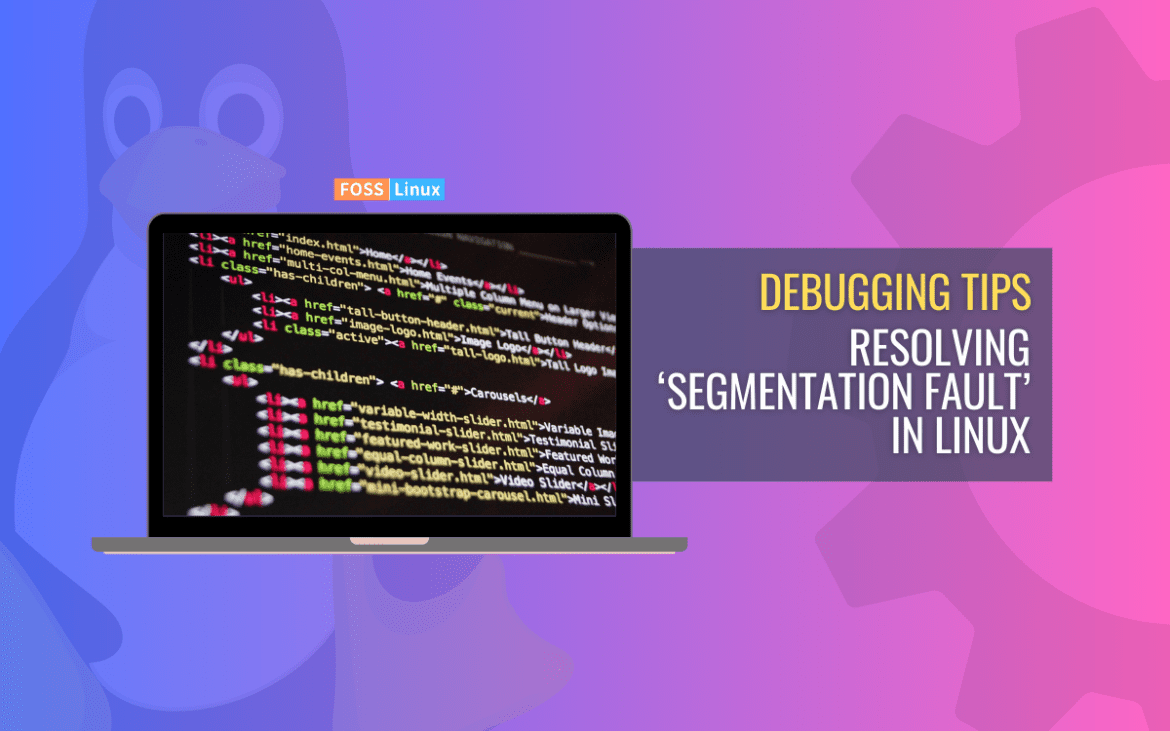Encountering a “Segmentation Fault” or “segfault” error in Linux can be frustrating, especially when you’re deep into coding or running a crucial application. In this blog, I’ll guide you through understanding what a segmentation fault is, why it happens, and how to troubleshoot and solve it. We’ll use Ubuntu, a popular Linux distribution, for our examples.
What is a segmentation fault?
A segmentation fault occurs when a program tries to access a memory segment that it’s not allowed to. This usually happens due to bugs in the program, such as dereferencing null or invalid pointers, buffer overflows, or accessing memory out of bounds.
Common causes of segmentation faults
- Dereferencing null pointers: Attempting to access memory through a pointer that hasn’t been initialized.
- Buffer overflows: Writing data beyond the boundaries of a buffer.
- Stack overflows: Recursion without a base case or too deep recursion.
- Incorrect use of pointers: Accessing freed memory or using pointers incorrectly.
Example scenario: Debugging a segmentation fault
Let’s say you have a simple C program that is causing a segmentation fault. Here’s a sample code snippet:
#include <stdio.h>
void cause_segfault() {
int *ptr = NULL;
*ptr = 42; // This will cause a segmentation fault
}
int main() {
cause_segfault();
return 0;
}
When you compile and run this program, you’ll see something like this in the terminal:
$ gcc -o segfault_example segfault_example.c $ ./segfault_example Segmentation fault (core dumped)
Steps to solve segmentation faults
Step 1: Check the core dump
First, let’s enable core dumps to get more information about the crash. Core dumps are disabled by default on many systems for security reasons. You can enable them with the following command:
$ ulimit -c unlimited
Now, when you run the program, a core dump file will be generated.
$ ./segfault_example Segmentation fault (core dumped)
You’ll see a file named core or core.<pid> in your directory. This file contains a snapshot of the program’s memory at the time of the crash.
Step 2: Use GDB to analyze the core dump
GDB (GNU Debugger) is a powerful tool for debugging programs. You can use it to analyze the core dump and find out where the segmentation fault occurred.
$ gdb ./segfault_example core
Once inside GDB, use the bt (backtrace) command to see the stack trace:
(gdb) bt #0 0x000000000040113a in cause_segfault () at segfault_example.c:5 #1 0x000000000040114a in main () at segfault_example.c:10
The stack trace shows that the segmentation fault occurred at line 5 in the cause_segfault function. The problem is that we’re trying to dereference a null pointer.
Step 3: Fix the code
Now that we know the cause of the segmentation fault, we can fix the code. In this case, we need to initialize the pointer before using it:
#include <stdio.h>
void cause_segfault() {
int value = 42;
int *ptr = &value; // Initialize the pointer
*ptr = 42;
}
int main() {
cause_segfault();
return 0;
}
Recompile and run the program again:
$ gcc -o segfault_example segfault_example.c $ ./segfault_example
This time, the program should run without any errors.
Other useful debugging techniques
Using Valgrind
Valgrind is another excellent tool for detecting memory-related issues, including segmentation faults. Install it using:
$ sudo apt-get install valgrind
Run your program with Valgrind:
$ valgrind ./segfault_example
Valgrind will provide detailed information about memory accesses and help you pinpoint issues.
Adding debug prints
Sometimes, a simple approach like adding printf statements can help you track down where things go wrong. For example:
#include <stdio.h>
void cause_segfault() {
printf("Before causing segfault\n");
int *ptr = NULL;
*ptr = 42; // This will cause a segmentation fault
printf("After causing segfault\n");
}
int main() {
printf("Starting main\n");
cause_segfault();
printf("Ending main\n");
return 0;
}
Compile and run the program to see the output. The last printed message will give you a clue about where the fault occurs.
Conclusion
Segmentation faults are a common problem in programming, especially in languages like C and C++ that allow direct memory manipulation. By understanding what causes them and using tools like GDB and Valgrind, you can effectively troubleshoot and fix these errors. I suggest to enable core dumps, use debugging tools, and review your code for common pitfalls like null pointer dereferencing and buffer overflows.

